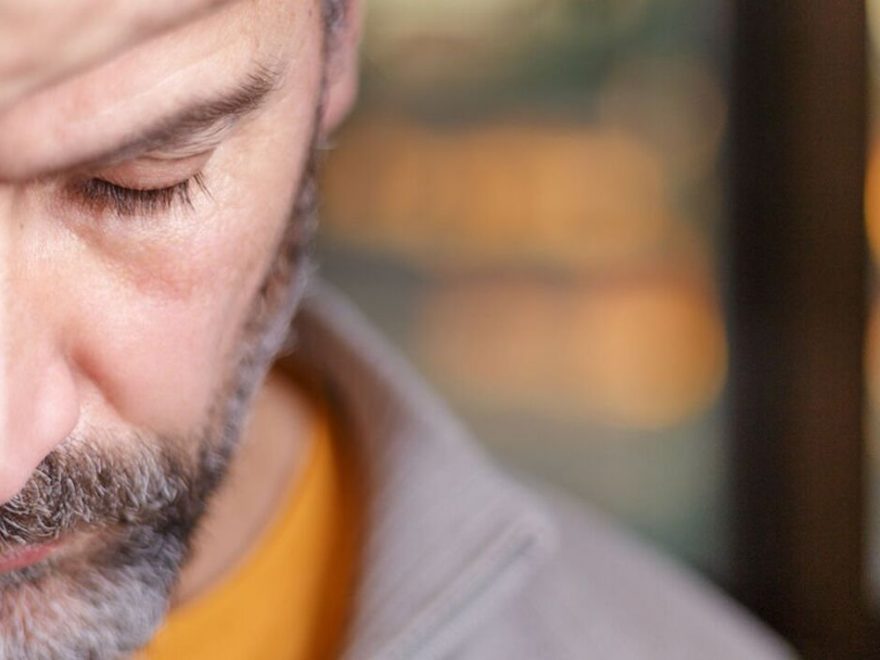Omicron: GP explains ‘overwhelming’ science behind vaccines
We use your sign-up to provide content in ways you’ve consented to and to improve our understanding of you. This may include adverts from us and 3rd parties based on our understanding. You can unsubscribe at any time. More info
One of the most pernicious lies spread about the Covid vaccines is that they stop you getting Covid. Since Covid still spreads among the fully vaccinated, this falsehood has emboldened anti-vaxxers to claim the vaccines are ineffectual. The truth is, vaccines do not prevent you from catching Covid, but they greatly reduce the severity of its impact, which makes them invaluable. Catching Covid post-vaccination has nonetheless thrown up some interesting insights. One of the most intriguing is the symptom more likely to appear in the vaccinated than the unvaccinated.
Increasingly, people are reporting bouts of sneezing after testing positive for Covid following their booster jab.
Twitter has become a font of these anecdotes. Twitter user Illumiell wrote: “I’m glad I got my Flu and COVID booster a month ago. This is literally exactly the timing which saved my a** from possibly a really bad time AGAIN.
“So far I only had sneezing, some fatigue, and now a sore throat that has been mild and rapidly diminishing.”
Another user, iamofdaniel, recently posted: “Lots of coughing and sneezing at the airport today.

“I’m glad I recently had covid plus got my updated booster and flu shots!”
Evidence bears about these claims. Daily reports on the ZOE COVID Study app, which tracks the symptoms of Covid, also revealed sneezing to be a symptom exclusively seen post-vaccination.
Curiously, ZOE researchers noticed that people who had been vaccinated and then tested positive for COVID-19 were “more likely” to report sneezing as a symptom compared with those without a jab.
“If you’ve been vaccinated and start sneezing a lot without an explanation, you should get a Covid test, especially if you are living or working around people who are at greater risk from the disease,” they wrote.
DON’T MISS
Bob Mortimer admits he is ‘not very well’ [INSIGHT]
Blood clots: Four drinks to avoid to reduce your risk [TIPS]
Man, 63, hit with cancer after getting hyperhidrosis [ADVICE]
It’s also worth noting that sneezing is a key way that viruses spread.
“Try to cover all coughs and sneezes with tissue or the inside of your elbow to minimise the spread of droplets,” advises the ZOE team.
They continued: “Avoid touching your eyes, nose and mouth until you wash your hands.
“Sneezing a lot could be a potential sign that someone vaccinated has COVID-19 and, however mild, should take a test and self-isolate to protect their friends, family and colleagues.”

What other Covid symptoms are common post-vaccination?
Here is the current ranking of COVID symptoms after two vaccinations:
- Sore throat
- Runny nose
- Blocked nose
- Persistent cough
- Headache.
Generally, similar symptoms of COVID-19 are being reported overall in the ZOE app by people who had and hadn’t been vaccinated.
However, fewer symptoms were reported over a shorter period of time by those who had already had a jab, suggesting that they were falling less seriously ill and getting better more quickly.
The previous “traditional” symptoms as still outlined on the Government website, such as anosmia (loss of smell), shortness of breath and fever rank way down the list.
See the latest Covid vaccine stats below and visit InYourArea for all the Covid vaccine latest
A persistent cough now ranks at number five if you’ve had two vaccine doses, so is no longer the top indicator of having Covid.
It’s perfectly natural for symptoms to change over the course of a pandemic.
As with all viruses, the SARS-CoV-2 coronavirus which causes COVID-19 is rapidly evolving both its ability to spread and infect people, as well as the symptoms it causes.
There are a few reasons why symptoms may be changing, including the fact that those who have been vaccinated experience less severe symptoms, as well as more cases being reported by younger people, who we have found experience different, less severe symptoms as well.
Source: Read Full Article
